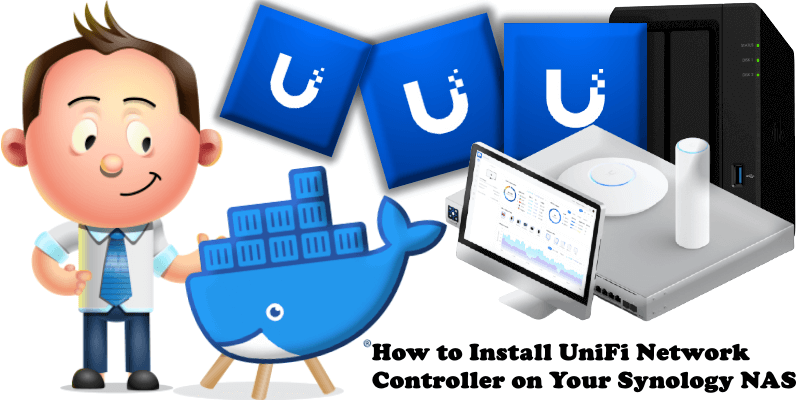
The UniFi Controller or Network Application is a wireless network management software solution from Ubiquiti Networks that supports the latest UniFi Network Application app. It allows you to manage multiple wireless networks using a web browser. Compared to my previous guide, How to Install Unifi Controller 7 on Your Synology NAS, this guide is fully compatible with the latest Unifi Network Application 10.1.85. In this step by step guide I will show you how to Install the Unifi Network Application on your Synology NAS using Docker & Portainer.
STEP 1
Please Support My work by Making a Donation.
STEP 2
Install Portainer using my step by step guide. If you already have Portainer installed on your Synology NAS, skip this STEP. Attention: Make sure you have installed the latest Portainer version.
STEP 3
Go to File Station and open the docker folder. Inside the docker folder, create one new folder and name it unifi. Follow the instructions in the image below.
Note: Be careful to enter only lowercase, not uppercase letters.
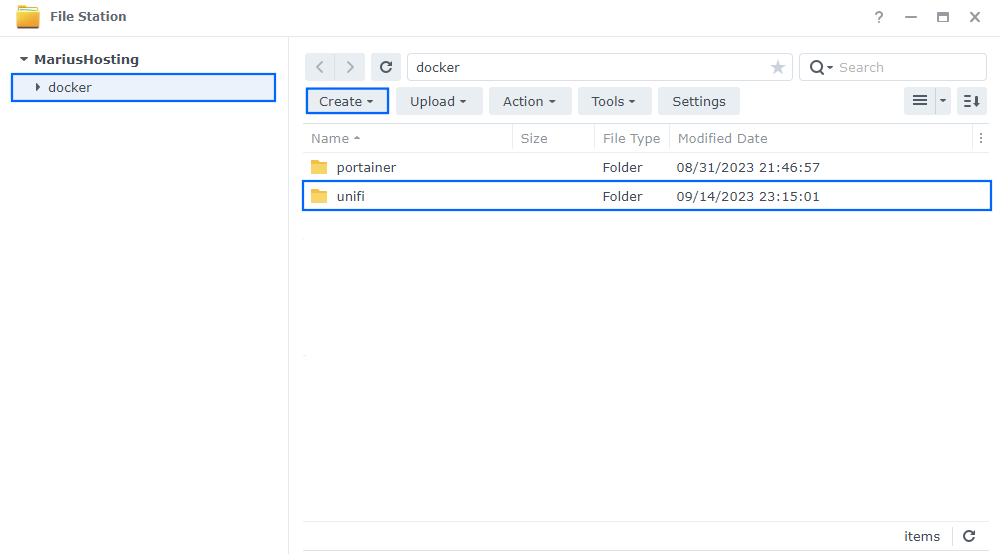
STEP 4
Now create two new folders inside the unifi folder that you have previously created at STEP 3 and name them config and db. Follow the instructions in the image below.
Note: Be careful to enter only lowercase, not uppercase letters.
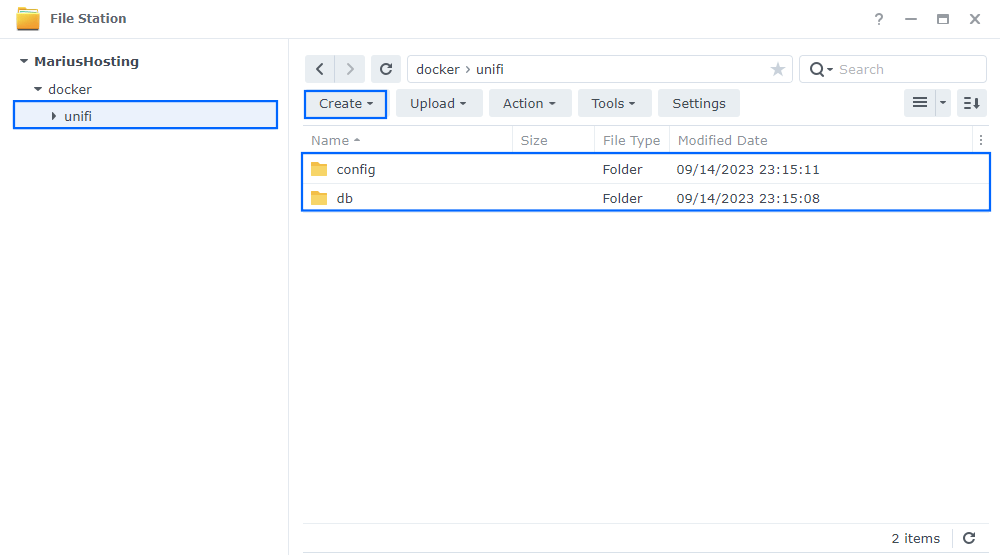
STEP 5
Download (click on the blue link below) then unzip and upload the init-mongo.js file below in the db folder that you have previously created at STEP 4. Follow the instructions in the image below. 🔒Note: Support my work to unlock the password. You can use this password to download any file on mariushosting forever!
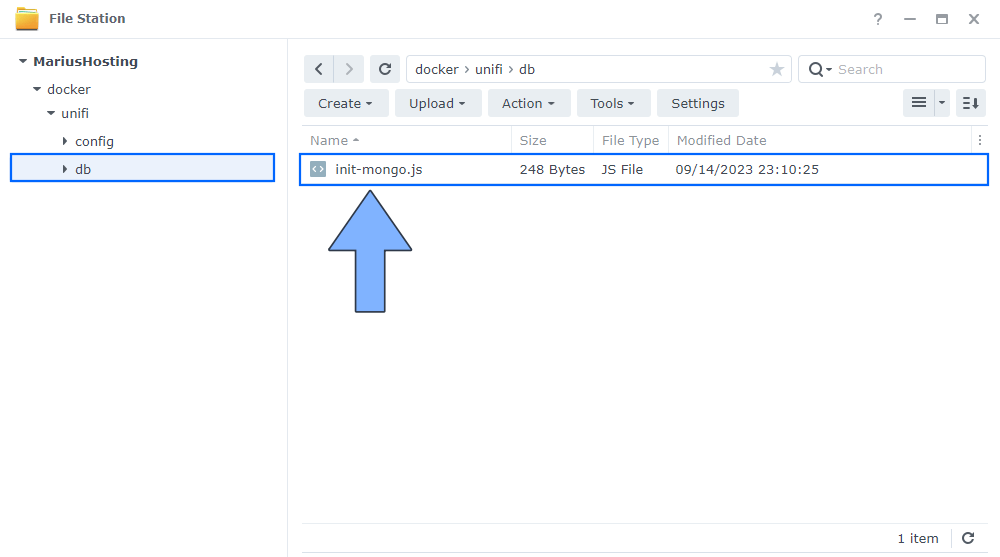
STEP 6
Log into Portainer using your username and password. On the left sidebar in Portainer, click on Home then Live connect. Follow the instructions in the image below.

On the left sidebar in Portainer, click on Stacks then + Add stack. Follow the instructions in the image below.

STEP 7
In the Name field type in unifinetwork. Follow the instructions in the image below.
services:
db:
image: mongo:4.4 # only up to 4.4 !
container_name: Unifi-Network-Application-Database
hostname: unifi-db
mem_limit: 2g
cpu_shares: 768
security_opt:
- no-new-privileges:false
healthcheck:
test: ["CMD", "mongo", "--eval", "db.adminCommand('ping')"]
interval: 10s
timeout: 10s
retries: 5
start_period: 20s
volumes:
- /volume1/docker/unifi/db:/data/db:rw
- /volume1/docker/unifi/db/init-mongo.js:/docker-entrypoint-initdb.d/init-mongo.js:ro
restart: on-failure:5
unifi-network-application:
image: ghcr.io/linuxserver/unifi-network-application:latest
container_name: Unifi-Network-Application
hostname: unifi-network-application
mem_limit: 4g
cpu_shares: 1024
security_opt:
- no-new-privileges:false
ports:
- 8443:8443 # Required - web admin port
- 3478:3478/udp # Required - STUN port
- 10001:10001/udp # Required - AP discovery
- 8080:8080 # Required - Device communication
#- 1900:1900/udp # optional - controller discoverable on L2 network
- 8843:8843 # optional - Unifi guest portal HTTPS redirect port
- 8880:8880 # optional - Unifi guest portal HTTP redirect port
- 6789:6789 # optional - For mobile throughput test
- 5514:5514/udp # optional - Remote syslog port
volumes:
- /volume1/docker/unifi/config:/config:rw
environment:
TZ: Europe/Bucharest
PUID: 1026
PGID: 100
MONGO_USER: unifiuser
MONGO_PASS: unifipass
MONGO_HOST: unifi-db
MONGO_PORT: 27017
MONGO_DBNAME: unifi
MEM_LIMIT: 2048 # optional - Java memory limit
MEM_STARTUP: 2048 # optional - Java initial/minimum memory
restart: on-failure:5
depends_on:
db:
condition: service_started
Note: After you paste the code in the Web editor, change the value for TZ (Select your current Time Zone from this list).
Note: Before you paste the code above in the Web editor area below, change the value numbers for PUID and PGID with your own PUID and PGID values. (Follow my step by step guide on how to do this.) 1026 is my personal PUID value and 100 is my personal PGID value. You have to type in your own values.
Note: At the beginning of the Docker Compose code, you can also change the mongo:4.4 image with the latest mongo:7 image if your NAS supports AVX.
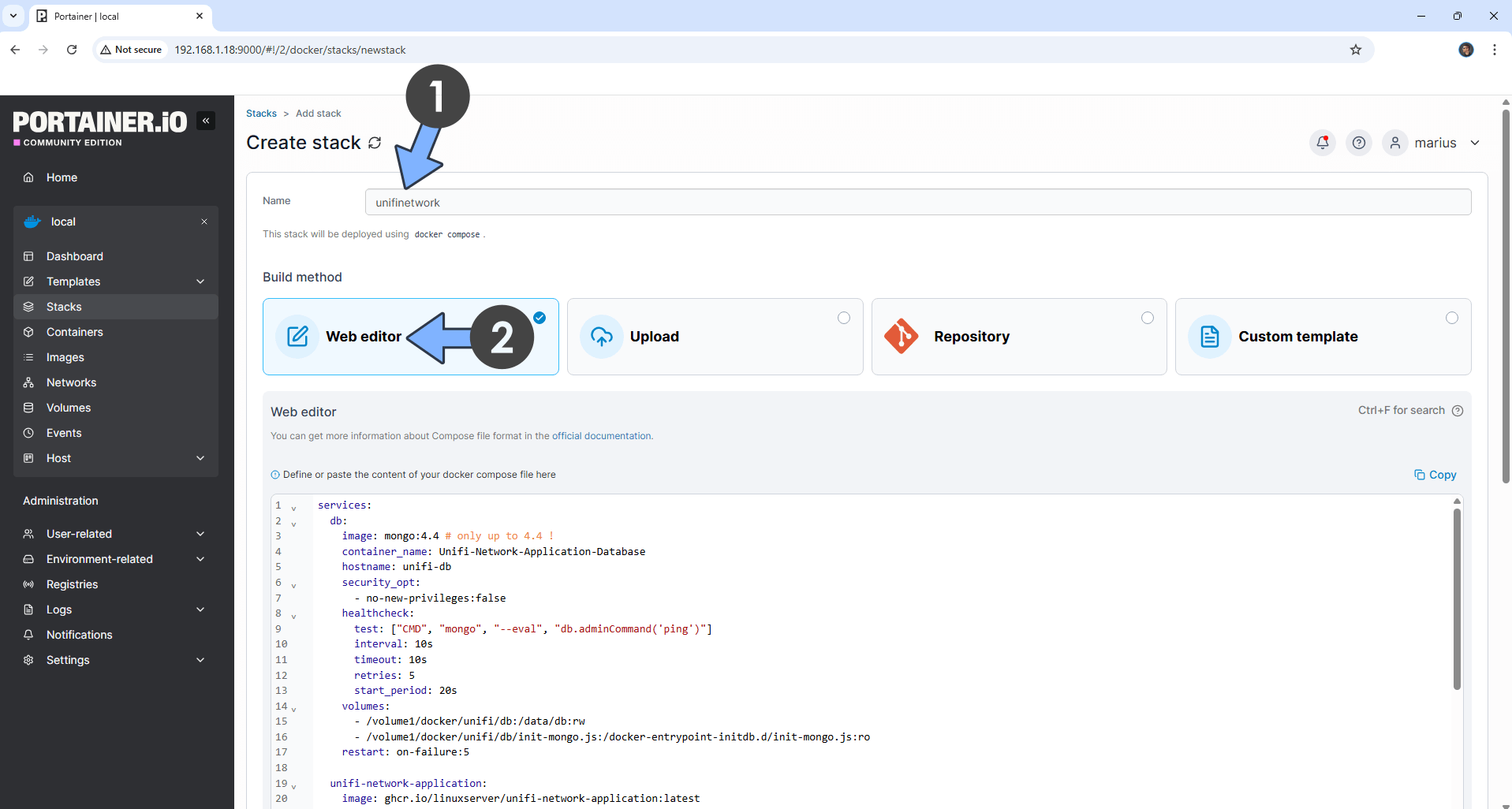
STEP 8
Scroll down on the page until you see a button named Deploy the stack. Click on it. Follow the instructions in the image below. The installation process can take up to a few minutes. It will depend on your Internet speed connection.
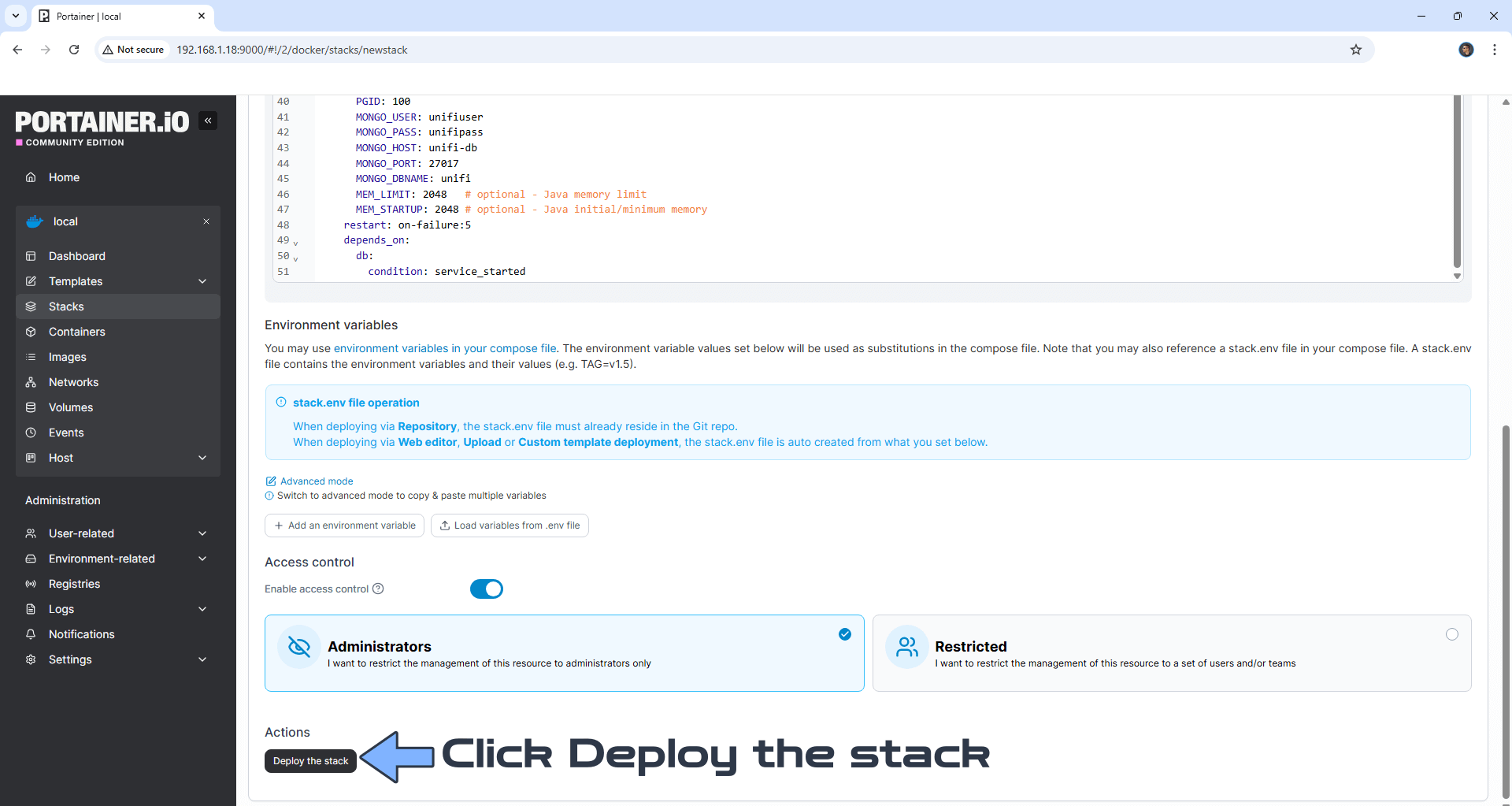
STEP 9
If everything goes right, you will see the following message at the top right of your screen: “Success Stack successfully deployed“.

STEP 10
🟢Please Support My work by Making a Donation. Almost 99,9% of the people that install something using my guides forget to support my work, or just ignore STEP 1. I’ve been very honest about this aspect of my work since the beginning: I don’t run any ADS, I don’t require subscriptions, paid or otherwise, I don’t collect IPs, emails, and I don’t have any referral links from Amazon or other merchants. I also don’t have any POP-UPs or COOKIES. I have repeatedly been told over the years how much I have contributed to the community. It’s something I love doing and have been honest about my passion since the beginning. But I also Need The Community to Support me Back to be able to continue doing this work.
STEP 11
The installation process can take up to a few seconds/minutes. It will depend on your Internet speed connection. Now open your browser and type in http://Synology-ip-address:8080/setup You will be automatically redirected to an https 8443 port. If you are using the chrome browser, click Advanced. Follow the instructions in the image below.
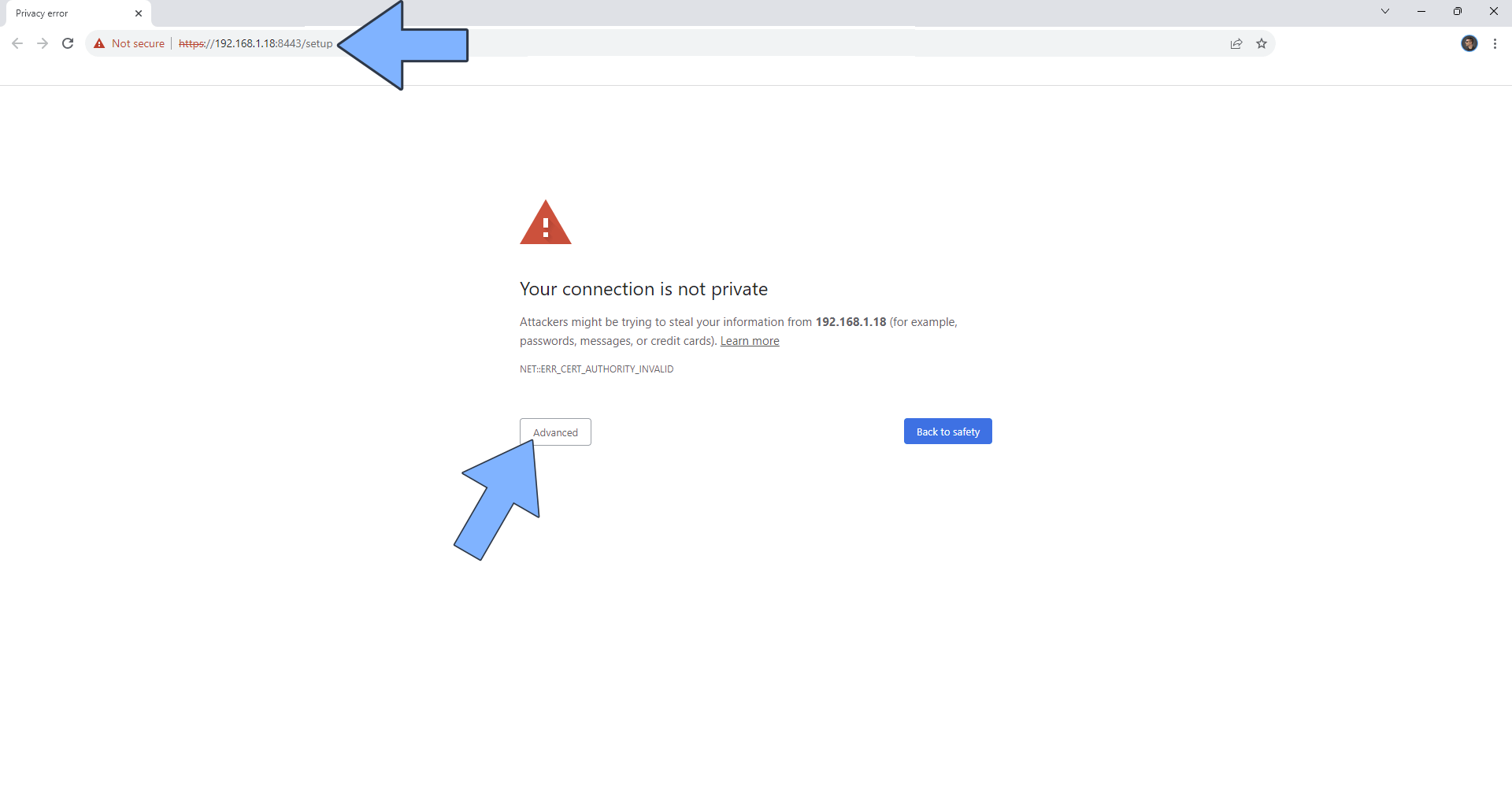
STEP 12
Click to Proceed to your local NAS IP (unsafe). Follow the instructions in the image below.
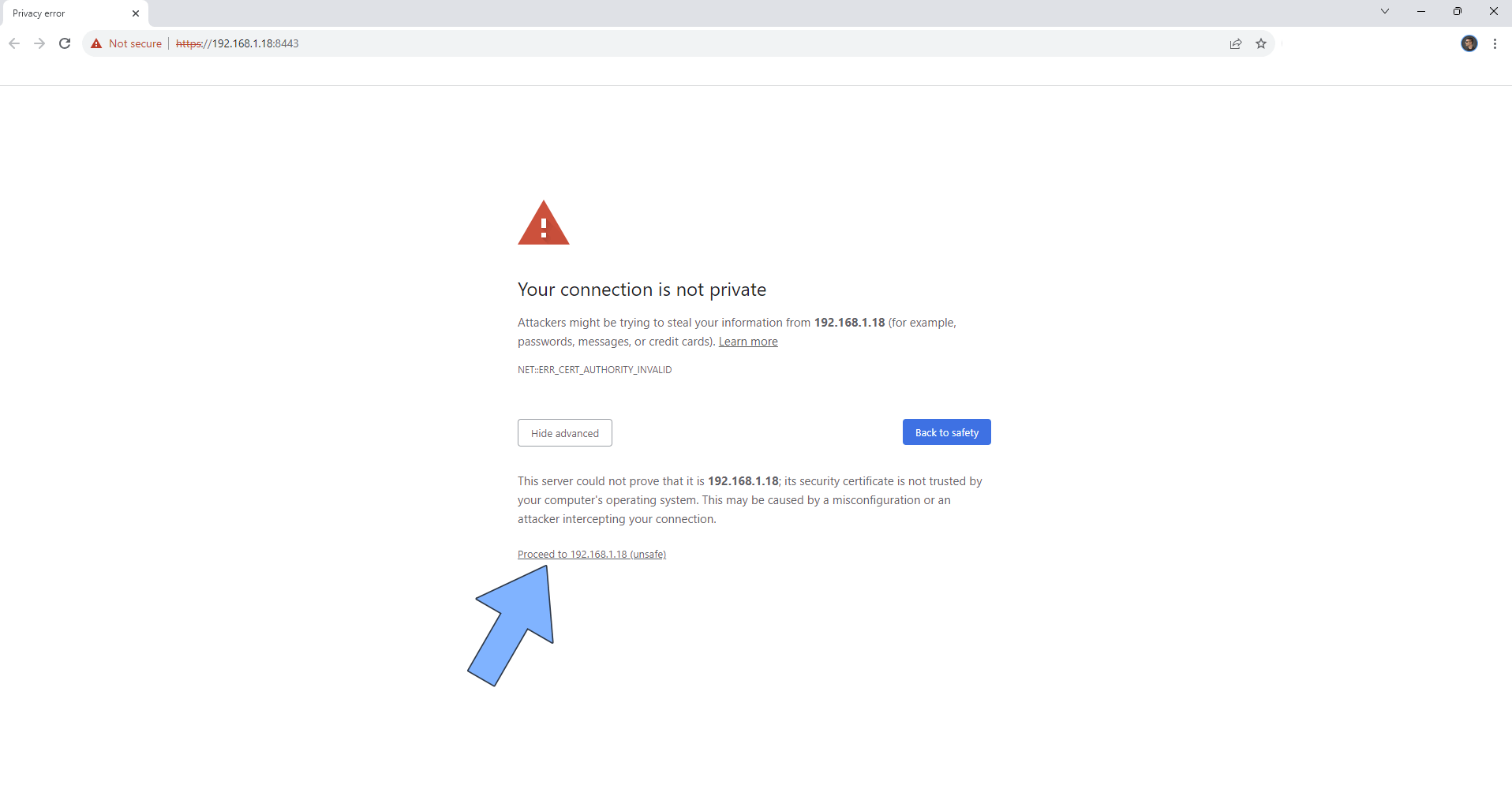
STEP 13
Select a name for the Server Controller, then check “I agree with the user license and terms of service”. Click Next to start the installation wizard.
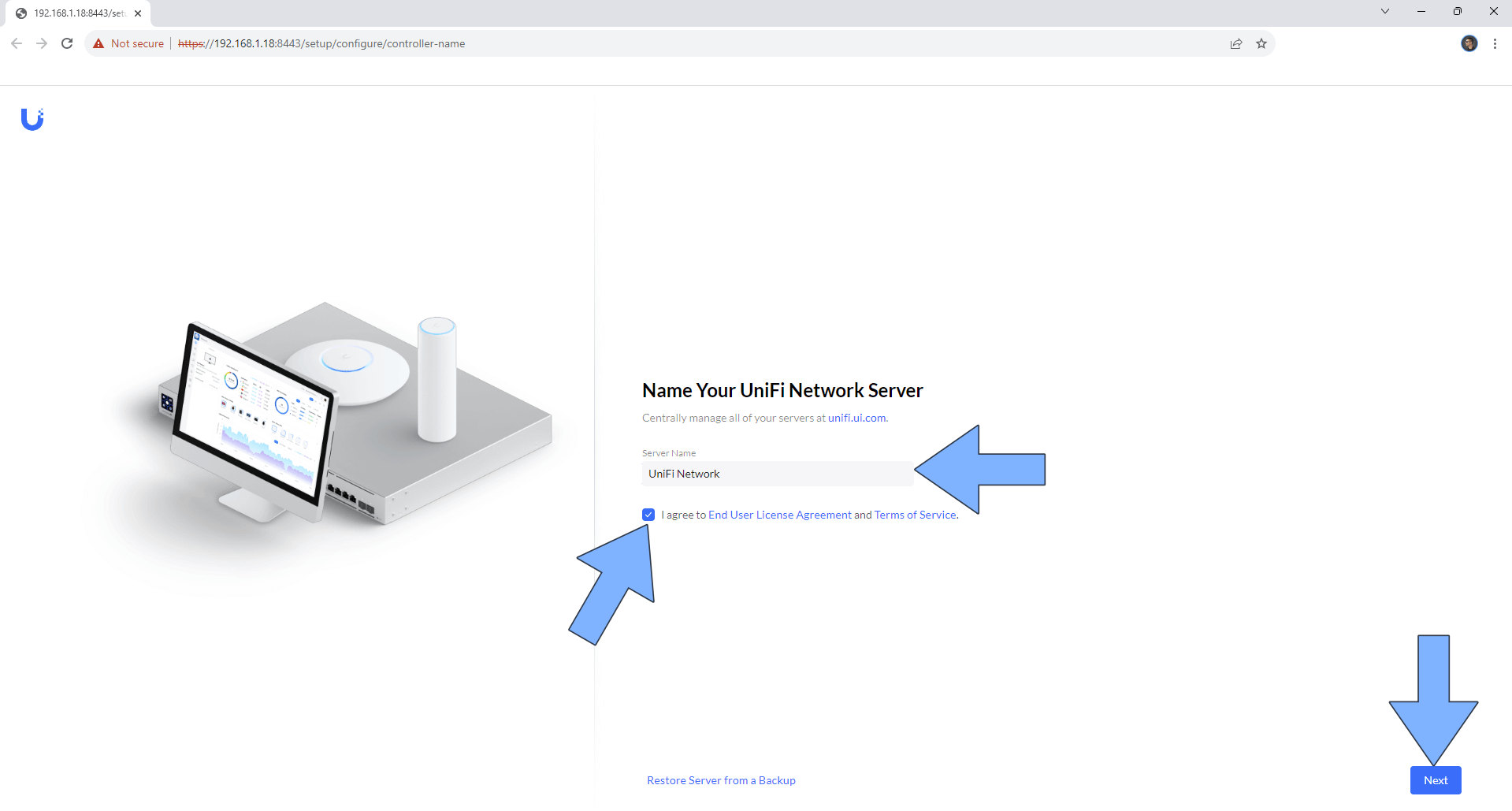
Enjoy UniFi Network Controller!
If you encounter issues by using this container, make sure to check out the Common Docker issues article.
⚠️Fix: Permission Denied. If you encounter permission issues and not all containers are starting, ensure that your current NAS user has Read/Write permissions for the Docker folder in Control Panel > User & Group > Select the current NAS user > Edit tab > Permissions tab. You can also try to add Everyone read/write permission to the unifi folder like this other article from STEP 5 to STEP 9.
Fix: Make sure RULE 6 on your Synology Firewall is correctly set up.
Fix: Once you have installed Unifi Network Controller, go to Settings / System and scroll all the way to the bottom and enable “override inform host“, using the IP address of the NAS as the value.
If you are using the mongo:7 image instead of the mongo:4.4 image, you should change the healthcheck at STEP 7 from:
healthcheck:
test: ["CMD", "mongo", "--eval", "db.adminCommand('ping')"]
to
healthcheck:
test: ["CMD", "mongosh", "--eval", "db.adminCommand('ping')"]
So, mongo for mongo:4.4 and mongosh for mongo:7
- Open your controller in a browser, example: https://192.168.1.10:8443/
manage/default/devices - Click on the gear icon or Device Settings. This is located in the top-right corner, click the gear icon labeled *Device Updates and Settings*
- Look for *Inform Host Override* in the panel.
- Enable it and enter your NAS LAN IP (e.g., 192.168.1.10).
- Apply changes.
Note: If you want to run the UniFi Network Controller container over HTTPS, check How to Run Docker Containers Over HTTPS. In order to make UniFi Network Controller work via HTTPS, it’s mandatory to activate WebSocket.
Note: Can I run Docker on my Synology NAS? See the supported models.
Note: How to Back Up Docker Containers on your Synology NAS.
Note: Find out how to update the UniFi Network Controller container with the latest image.
Note: How to Add USB Support on DSM 7.2.
Note: How to Free Disk Space on Your NAS if You Run Docker.
Note: How to Schedule Start & Stop For Docker Containers.
Note: How to Activate Email Notifications.
Note: How to Add Access Control Profile on Your NAS.
Note: How to Change Docker Containers Restart Policy.
Note: How to Use Docker Containers With VPN.
Note: Convert Docker Run Into Docker Compose.
Note: How to Clean Docker.
Note: How to Clean Docker Automatically.
Note: Best Practices When Using Docker and DDNS.
Note: Some Docker Containers Need WebSocket.
Note: Find out the Best NAS Models For Docker.
Note: Activate Gmail SMTP For Docker Containers.
This post was updated on Friday / February 13th, 2026 at 12:42 PM
